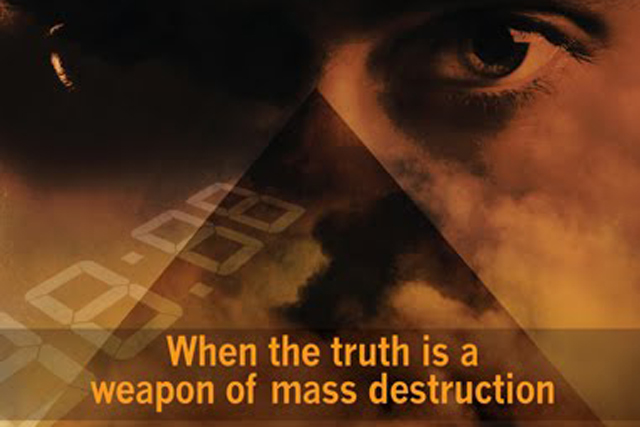Mansion-class celebs are coming for Labour. First there was Myleene Klass’s ITV sofa assault on Ed Miliband’s property tax plans — “You can’t just point at things and tax them!” — to which a frozen Ed failed to answer “Yes you can if it’s a house!”
Then Hollywood royalty waded in on the row. Angelina Jolie (net worth with Brad £269m) told Channel 4’s Jon Snow that she may — shock, horror — decide not to move to a Marylebone mansion if Labour decides to tax it. “That might put me off.”
With Myles and Angie on his case, Miliband’s no-balls shadow chancellor is quaking. In an Evening Standard column Ed Balls admitted that plans to tax £2m-plus properties “are not popular with everyone but we but we are being clear about where the money is coming from for our health service.”
Let’s face it, if you put Myleene and “Tomb Raider” Angelina into a ring with the two Eds for gloves-off fisticuffs, there’s little doubt about who would end up face down on the mat. These high-net worth stars, known for their humanitarian leanings and constant use of the pages of Hello! to show off their fabulous lifestyle, have now jumped to the defence of the hard put-upon pluto-grannies from this tax thingummy.
And to save the Eds from a further pasting, Myles and Angie have got together to have a go at rewriting the Labour manifesto to make it more celeb-friendly. Truly, with Brangelina serious about getting a “foothold” in London — and she being “responsible about money” — who better to give advice on economy policy?
So here is their 10-point plan to remake Britain:
1. Poor people should stop complaining. It’s within their power to become who they want to be. All you need is hard work, expensive education and high-powered pushy parents. Go for it!
2. Celebrities pay a lot of tax already (well, the ones not smart enough to use tax-avoidance schemes). The least we could do is give them their own lane on the motorway to drive their hot wheels past adoring fans. If it’s good enough for Kim Jong Un...
3. Elections will be fought out in an X-Factor cum Bake Off — that’s right. Sing or bake, or both. The public decides. Digital democracy at work.
4. Politics is boring and turning people off. From now on, PMQs will be replaced with a Klaas and Jolie masterclass in economics, including priceless advice on how to disburse your millions across the world and stay ahead of the taxman.
5. The British royal family needs a makeover, so let’s have a TV vote for who should be the next Queen. (Hint: someone younger, beautiful with a string of hit songs and/or movies).
6. Most NHS costs can be reduced by healthier lifestyles — its strictly seaweed from now on. Jolie-Klass TV will offer tips to the nation on healthy eating and daily workouts. Get out the lycra and get with the programme.
7. All school uniforms will be from Littlewoods and M&S, with free Baby K Clothes for nursery age toddlers — royalties to Myleene. Kerrching!
8. Most life lessons can be gleaned from a careful viewing of Lara Croft, Mr and Mrs Smith, Maleficent and The Tourist. Compulsory movie classes in schools from age five and school assemblies will learn to sing the Hear’Say back catalogue.
9. Free acting and classical music lessons for offenders to encourage rehabilitation with inspiration from Myles and Angie. A lucky few will get places on the Ex-Con Factor, hosted by Andy Coulson.
10. No more politics of envy. You are beautiful and talented — not as beautiful or talented as us obviously, but everyone can aspire to be the best.
There you go, Ed. Alternatively you could just tell these millionaires that if they don’t want to pay their tax, they are welcome to leave. I hear Malibu is lovely this time of year — they can be happy knowing we’ll find a socially useful way to occupy those empty mansions.



